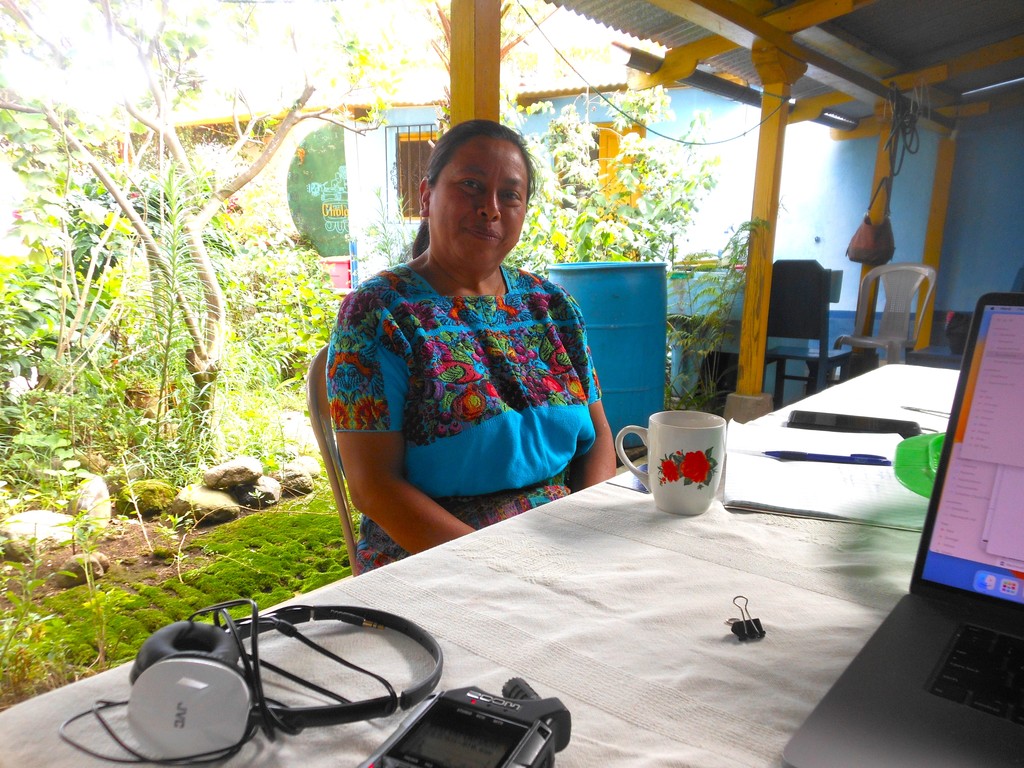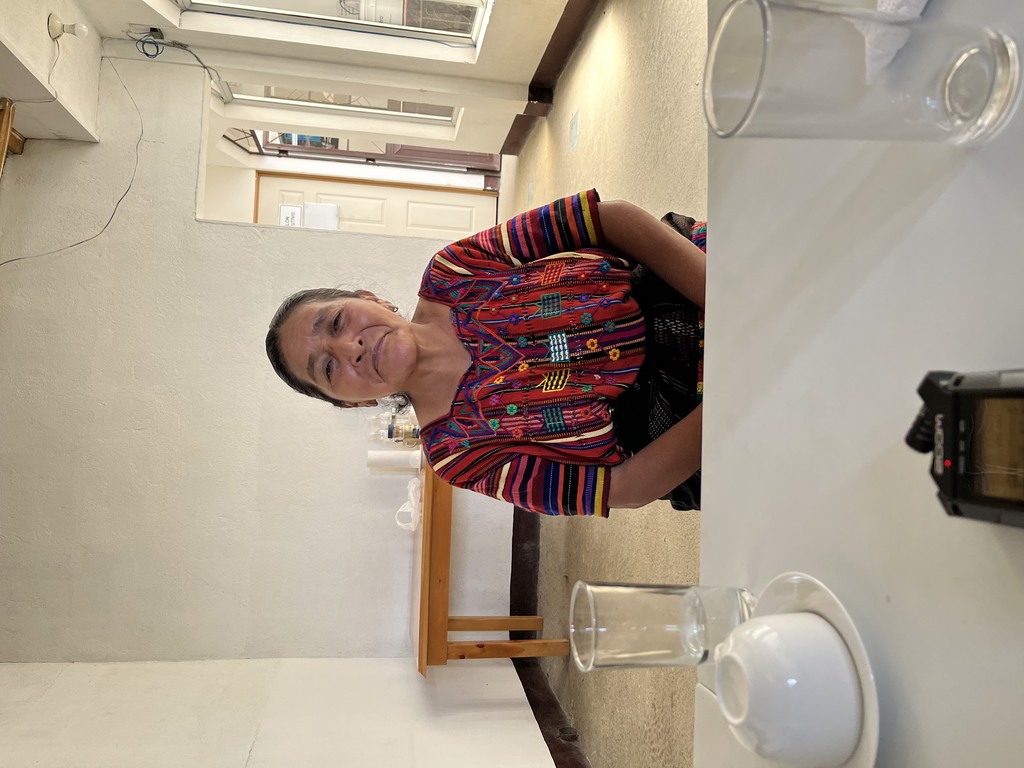The Loyola Notre Dame Library is thrilled to have Zoom audio recording equipment available for checkout, made possible by the Loyola University Maryland Center for the Humanities. This article by Dr. David Carey, Jr., Doehler Chair in History, Professor of History at Loyola University Maryland, provides a unique example of how this portable audio recording kit can be used to preserve and expand access to vital oral histories.
The day I arrived in Guatemala this summer my colleagues at Wuqu Kawoq—Maya Health Alliance in the Kaqchikel Maya highland city of Tecpán had arranged for me to conduct four oral history interviews. With little time to adjust my ear and mind to speaking Kaqchikel and Spanish, I was less than confident in my ability to articulate my questions clearly, but I knew the Zoom recording device would capture my collaborators’ insights even as I fumbled my way through the languages. In a nation where the military government perpetuated genocide against Mayas in the early 1980s, and indigenous people continue to face racial violence to such extremes that many flee to the United States for safety (and asylum), Wuqu Kawoq’s commitment to providing state of the art health care in indigenous languages and settings is a courageous and radical act. My colleagues (including some in Canada) and I wanted to know how doctors, nurses, midwives,and healers experienced the Covid-19 pandemic at a health clinic that provides scientific medical care and embraces indigenous healing epistemologies and practices.

To that end, I conducted three interviews at Wuqu Kawoq’s headquarters; one in the office of a doctor who is a native Kaqchikel speaker and two others with a Kaqchikel midwife and Kaqchikel public health outreach coordinator in a spacious second floor room. In those controlled environments, the Zoom recording device captured the interviews well even though for reasons of propriety I did not ask interviewees to clip the microphone to their po’t (güipil,colorful hand-woven blouse). All three women conveyed the hardships that so many of us faced during the pandemic, but also highlighted the efficacy of indigenous medicinal plants and hygiene—particularly bathing in the traditional sweat bath so common in highland homes—in keeping the virus as bay in many communities.

As we left the more controlled environment of the Wuqu Kawoq offices for the private home of an ajq’ij (curandero, indigenous daykeeper/healer), I knew we would be all the more dependent on the quality of the recording. The Kaqchikel ajq’ij invited us into his home where we sat just a few feet from the busy street outside his front door. Inside children and chickens enriched the ambient noise. Remarkably, the zoom recorder captured that consistent din without it drowning out the conversation, which was fortunate because the ajq’ij’s story of embracing his calling after years of trying to avoid it revealed that he understood the services he provides the community to be as much spiritual as medical.
Thanks to the Zoom recording device (and a generous grant from the Center for Humanities that funded it), these oral histories are now stored at the University of Manitoba so my Guatemalan and Canadian collaborators and I can analyze them. Most importantly, they are accessible to people in Guatemala so the knowledge we learn from Kaqchikel raconteurs (with pseudonyms to protect the interviewees) is available to Guatemalans.